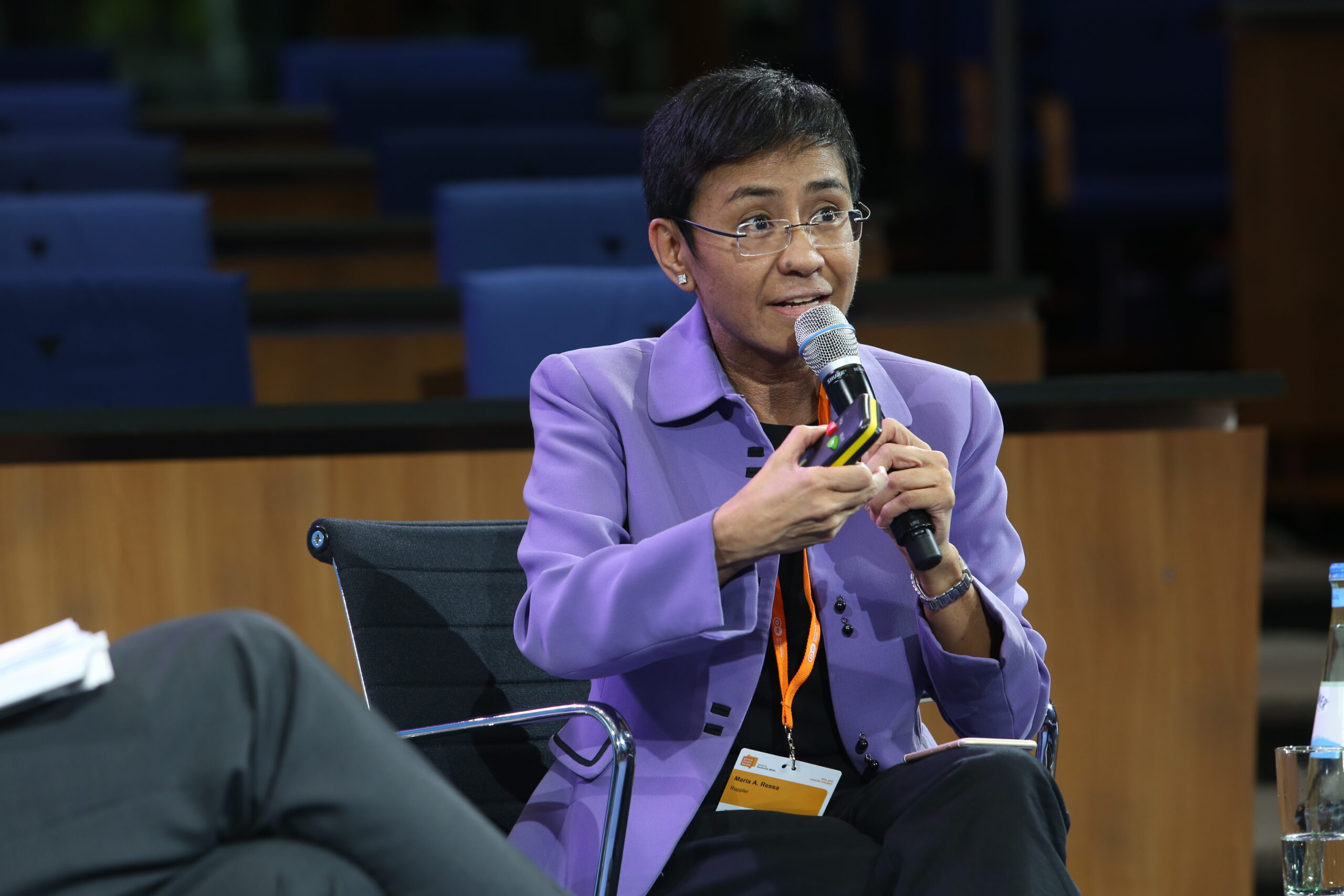Maria Ressa, co-founder and CEO of Rappler, became the first independent Filipino Nobel laureate, jointly receiving the 2021 Nobel Peace Prize alongside Russian journalist Dmitry Muratov.
She is the first Filipina and 18th woman out of 58 awardees to receive the award in its 126-year history.
Between 1901 and 2021, the Peace Prize was awarded 102 times to 137 Nobel Prize laureates across its five recognized fields—chemistry, literature, physics, physiology or medicine, and peace.
Nominated by Norwegian Labour Party leader Jonas Gahr Støre, Ressa was cited for her drive to “to safeguard freedom of expression, which is a precondition for democracy and lasting peace.”
The pair was recognized by the Norwegian Nobel Committee for leading their respective groundbreaking pursuits for freedom of expression.
“Without freedom of expression and freedom of the press, it will be difficult to successfully promote fraternity between nations, disarmament and a better world order to succeed in our time,” said Committee Chair Berit Reiss-Andersen.
In a conversation with Rappler shortly after receiving the award, Ressa recounted how her news organization fervently stood against the test of time and attacks on press freedom.
“This is my 35th year as a journalist. I’m old, and I think it helped that I was old along with the other co-founders of Rappler. We knew why we were doing what we were doing, we understood [the] standards and ethics of journalism.
“And so when we came under attack, there wasn’t really any other choice. The phrase we use is “hold the line,” because here’s the line, on this side you’re good, on this side you’re evil.”
Ressa also highlighted how Philippine journalism should persistently be empowered to continue moving forward despite countless adversities.
“The journalists will continue doing our jobs, but there are always repercussions if you do a story someone doesn’t like [..] Journalists will keep doing those stories. That’s what I hope will give us more power to do this,” she said.
‘A thousand cuts’
As a renowned author, instructor, and acclaimed journalist, Ressa braved the ever-changing global sociopolitical climate in the practice of her craft as a journalist.
Her two published books, “Seeds of Terror: An Eyewitness Account of Al-Qaeda’s Newest Center” in 2003, and “From Bin Laden to Facebook: 10 Days of Abduction, 10 Years of Terrorism” in 2013, delved deeply into the emergence of terrorism across Southeast Asian (SEA) nations.
She also served as an instructor for TV production and broadcast journalism at the UP Department of Broadcast Communication in the late ‘80s and taught the state of SEA press and politics at Princeton University in the United States.
In 2012, Ressa launched Rappler, an online news site with three fellow female founders overseeing 12 journalists and website developers.
From its humble beginnings as a Facebook page called MovePH a year earlier, Rappler grew under Ressa’s leadership into one of the nation’s most formidable and highly acclaimed pioneers in digital journalism.
As a staunch critic of Philippine President Rodrigo Duterte and his drug war, she was not spared from legal attacks spearheaded by the government.
Since 2018, Ressa and her team have faced a multitude of charges, cases, and arrests—all of which have been described as efforts by the administration to curtail Rappler’s bold and brazen brand of investigative journalism.
In her proverbial 2020 documentary “A Thousand Cuts,” which sheds light on the death of democracy and the fight for free press in the Philippines, Ressa bared her lingering thoughts on the oppressive optics of the Duterte administration.
“We have to realize that something horrific has already happened, and we are at this existential moment where, if nothing significant is done, journalism is only the first part. Journalism and democracy as we know it, is dead,” she explained.
“Every time I feel like I’m not doing my job, I work harder. The more the government harasses me and Rappler and other journalists, the more I think, ‘We must be missing a story […] What are we missing that they don’t want us to find?’” Ressa stressed.
Penetrating a ‘virtual’ democracy
In a conversation with Dr. Elizabeth Enriquez for her Broadcast Journalism 130 (Issues in Broadcast News and Public Affairs) class, Ressa shared what she considers as the three pillars of democracy today.
“If you don’t have facts, you can’t have truth. If you don’t have truth, you can’t have trust. If you don’t have these three, you cannot have a democracy,” she said.
The Nobel Peace Prize laureate gave her two cents on the inevitable emergence and role of social media as a rapid information-spreading mechanism — one that is crucial in cultivating how people perceive society beyond the virtual realms.
She cites how online content tends to be heavily driven by lies and deceit, as social media platforms draw higher engagement rates through highly sensational and captivating misinformation to generate more profit on their end.
Moreover, Ressa reminded future media practitioners of the grim realities of the ‘battleground’ they are poised to enter and potentially thrive in.
“You are choosing to come in at one of the worst times in the Philippines to be a journalist,” she said. “[This] is creative destruction — everything has been destroyed and it is time to create.”
“When it is a battle for facts, it is a battle for truth. Journalism becomes activism […] The insidious manipulation that’s happening on social media is happening with impunity.”
In the fervent quest to dismantle the shackles of curtailment and suppression in the country, Ressa imparted a profound message on journalism, more than a craft, as a lifelong commitment and manifestation of courage for freedom, for democracy, and for the people.
“The quality I look for more than anything is courage, because if you are afraid, then you’ll wind up moving somewhere else. You have to understand the role you play as a journalist […] it’s almost like a religious calling. That’s the reason why so many of us have given our lives to this,” she highlighted.
“Right now, whether I go to jail or not, I think depends on what I do right now as a journalist […] What you do as a journalist will make Filipinos care or not care, but you [always] have to find the courage inside yourself.” DZUP

